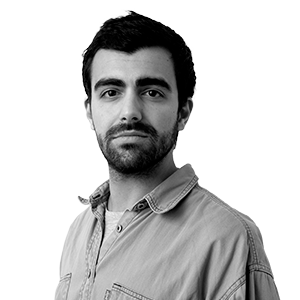New residents want to be family doctors: "I will follow patients until the end of their lives."
The vast majority of residency places at the CAPs have been awarded after years of many vacancies.


BarcelonaPrimary care is often perceived as the ugly duckling of the healthcare system among workers in the sector. The high workload, bureaucracy, and lack of personnel mean that many physicians rule out working in a primary care center (PCC), especially after the health crisis caused by Covid-19, which strained teams and the physical and mental health of its membersThe hangover from the pandemic has caused in recent years Hundreds of family medicine positions remain vacant and community because young people leaving university were opting for another medical specialty. However, this trend has reversed in 2025, and the vast majority of residency spots at primary care centers have been awarded, although the Department of Health has not specified how many of these young people ended up giving up their desired spot. ARA spoke with some of the faces of this generation of young people who, once again, want to be family doctors.
"A large part of the problem in family medicine has been created by us [the professionals]. We must break the stigma surrounding primary care and revalue the specialty. We are the first line of fire; without family doctors, we're going nowhere," says Juan José Zapata, a new resident physician at the Bages Primary Care Center in Man. He's from Almería, but has lived in Catalonia for seven years. He studied at the Autonomous University of Barcelona (UAB), and wanted to work in a primary care team away from the hustle and bustle of Barcelona. His partner is Catalan, and he is clear that, once he completes his four-year residency, he wants to continue living in Catalonia and working in a Primary Care Center. Like Zapata, more than 300 young people have chosen the specialty of family and community medicine this year in our country, which has become the most popular option.
In total, the Catalan public health system has incorporated 1,931 new professionals as residents this year, 2.8% more than last year. Of these, however, more than half are from outside Catalonia, either from other autonomous communities or other countries. The Minister of Health, Olga Pané, hopes these doctors will stay and work in Catalan centers and celebrates the fact that so many positions have been awarded, especially in primary care. "I was surprised that it was a specialty with little demand. It has a global vision of health and a proximity to the region that makes it very attractive," the Minister of Health argued in an interview with ARA. According to the Minister, this year marked the peak of retirements of professionals from the system and, for the first time in recent years, there are "more graduates than people retiring," which should strengthen the Catalan centers with more staff.
The gateway to the system
Barcelona and the metropolitan area are where most healthcare centers are concentrated and, therefore, where most new doctors have gone. This is the case of Maria Espina, Iker Bruna, and Laura Carrascosa, who this week began their residencies at the CAP Gòtic in the Catalan capital. All three were clear that they wanted to work in primary care, although they acknowledge that it's a level of care that has fallen into disrepute, especially in recent years. "I chose primary care because it allows you to get to know the patients from all walks of life, and other specialties don't allow that. I think this contact is important," explains Carrascosa, who studied at the University of Vic and was clear that she wanted to work in a center with a wide variety of patients, like this one in Ciutat Vella, which handles highly complex cases. "I'm sure we won't get bored here," she adds.
Espina also emphasizes the contact family doctors have with their patients, as when she tried other medical specialties, she explains that they fell short. "I want to follow my patients from age 18 until the end of their lives," maintains the doctor, who finds the social and community aspect of her specialty very attractive. She also studied at the UAB and her father is a family doctor, so she believes that part of her decision comes from her family. "It's the gateway to the healthcare system and we all end up using it; we are very important," she asserts.
For Bruna, primary care offers many opportunities for its workers and she trusts that the reforms proposed by the Department of Health will allow family doctors to contribute "even more value to the community." She believes there is a commitment to primary care, that professionals They are increasingly gaining more skills, and this is encouraging more young people, like them, to pursue the specialty of family and community medicine. "It's true that there's still a stigma, but little by little we have to break it down. It's a very beautiful specialty, and we can help a lot," Bruna concludes.
